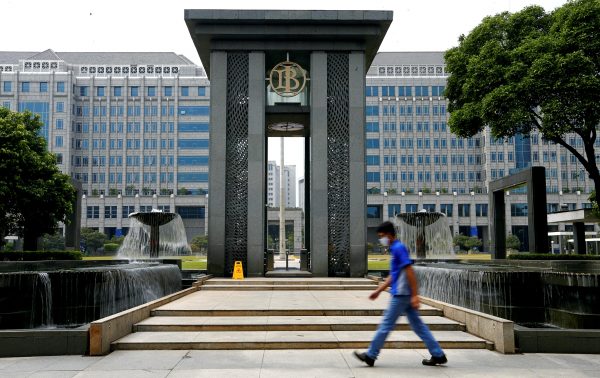There is a history to all of this, both in Indonesia and in many other countries. The current fuss about the role of Bank Indonesia, as well as several other financial agencies, reflects the long-standing antipathy towards Bank Indonesia harboured by Indonesian politicians for decades. There are various reasons for the difficult relationship between the central bank and the parliament, but the central issue is the independence Bank Indonesia has in setting monetary policy.
Antagonism towards central bank independence is hardly unique to Indonesia. There is a noisy lobby of Federal Reserve critics in the United States, many of whom resent the bank’s relatively independent control over monetary policy. Just a few weeks ago the former treasurer and prime minister of Australia, Paul Keating, launched an extraordinary attack on Australia’s central bank by suggesting the Reserve Bank of Australia become more subservient to government policy.
A related and worrying issue is the view that there are no limits to the amount of money central banks can print during this COVID-19 recession. Proponents of so-called modern monetary theory argue that governments need to take bold fiscal measures in response to COVID-19 — and that central banks should print whatever money is required to fund governments deficits.
Against this backdrop, the confused situation in Indonesia arose from differences over financial sector reforms proposed by the government and those suggested by influential groups in parliament.
In late August, the Indonesian Minister of Finance Sri Mulyani announced that the government was considering a decree to reform the financial sector. Reforms are certainly needed but the minister’s announcement set the cat among the pigeons. Various parliamentarians proceeded to outline their preferred suggestions for reform, while some legislators openly called for increased control — both by the president and the parliament — over Bank Indonesia and other important financial institutions.
One key but controversial proposal was the suggestion that a new five-member Monetary Board — chaired by the minister of finance and not the governor of Bank Indonesia — be established above Bank Indonesia. Critics warned that the new Board would exert influence over Bank Indonesia and would, in effect, increase government control over monetary policy.
But supporters of the change pointed out that better coordination was needed between regulatory agencies in the financial sector and that a new Monetary Board would help liaise across the sector.
The reforms also controversially seem to draw Bank Indonesia into a wider, almost unlimited role, in funding government spending. Bank Indonesia might be required, if necessary, to make direct purchases of bonds issued by the government to print money to finance the budget deficit.
In the last few months, Bank Indonesia has already bowed to pressure from the government to make direct purchases of government bonds. The original idea was for Bank Indonesia to stand ready to purchase government bonds in the secondary market — not as a direct buyer.
This approach, with the Ministry of Finance issuing bonds, had the advantage of subjecting the government to the discipline of market forces. But this discipline will weaken once Bank Indonesia enters the bond market as a primary buyer.
Jakarta also took the step of setting an explicit funding target for Bank Indonesia. The central bank was instructed to fund around half of the budget deficit (around US$40 billion) through bond purchases. The bank has now entered an unusual ‘burden sharing’ arrangement with the Ministry of Finance to fund the government deficit.
The risk in this approach is that discipline over government spending becomes weak. Stephen Grenville and Roland Rajah, both experienced observers of Indonesian monetary policy, note that ‘free money’ encourages parliamentarians, and perhaps some members of government, to promote pet expenditure projects.
Fortunately, senior policy makers in the Ministry of Finance are sensitive of the need to maintain the confidence of financial markets. Official statements about the ‘burden sharing’ program have emphasised the temporary nature of the arrangement.
Policymakers claim that international investors sold large amounts of Indonesian government bonds in the early stages of the COVID-19 pandemic, meaning the temporary measures were introduced partially in response to the unexpected instability in Indonesian bond market earlier this year.
The fuss about the independence of Bank Indonesia might yet blow over, even if the political party that supports increased control over Bank Indonesia in the parliament, the Indonesian Democratic Party of Struggle (PDI-P), also supports President Jokowi.
But the proposed changes are still being debated in the corridors of parliament and the latest news is that there is now little support for the reforms among other political parties. Perhaps the whole affair will prove to be a storm in a teacup. Yet, controversies of this kind do not strengthen Indonesia’s reputation in global financial markets.
It is already relatively expensive for Indonesia to borrow in international financial markets. Uncertainty over the conduct of monetary policy and signs of increased political control over the central bank will not help build investor confidence in the management of economic policy in Indonesia.
Peter McCawley is Honorary Associate Professor in the Indonesia Project at the Crawford School of Public Policy, The Australian National University. He was formerly an Australian Executive Director on the Board of the Asian Development Bank, Manila.

